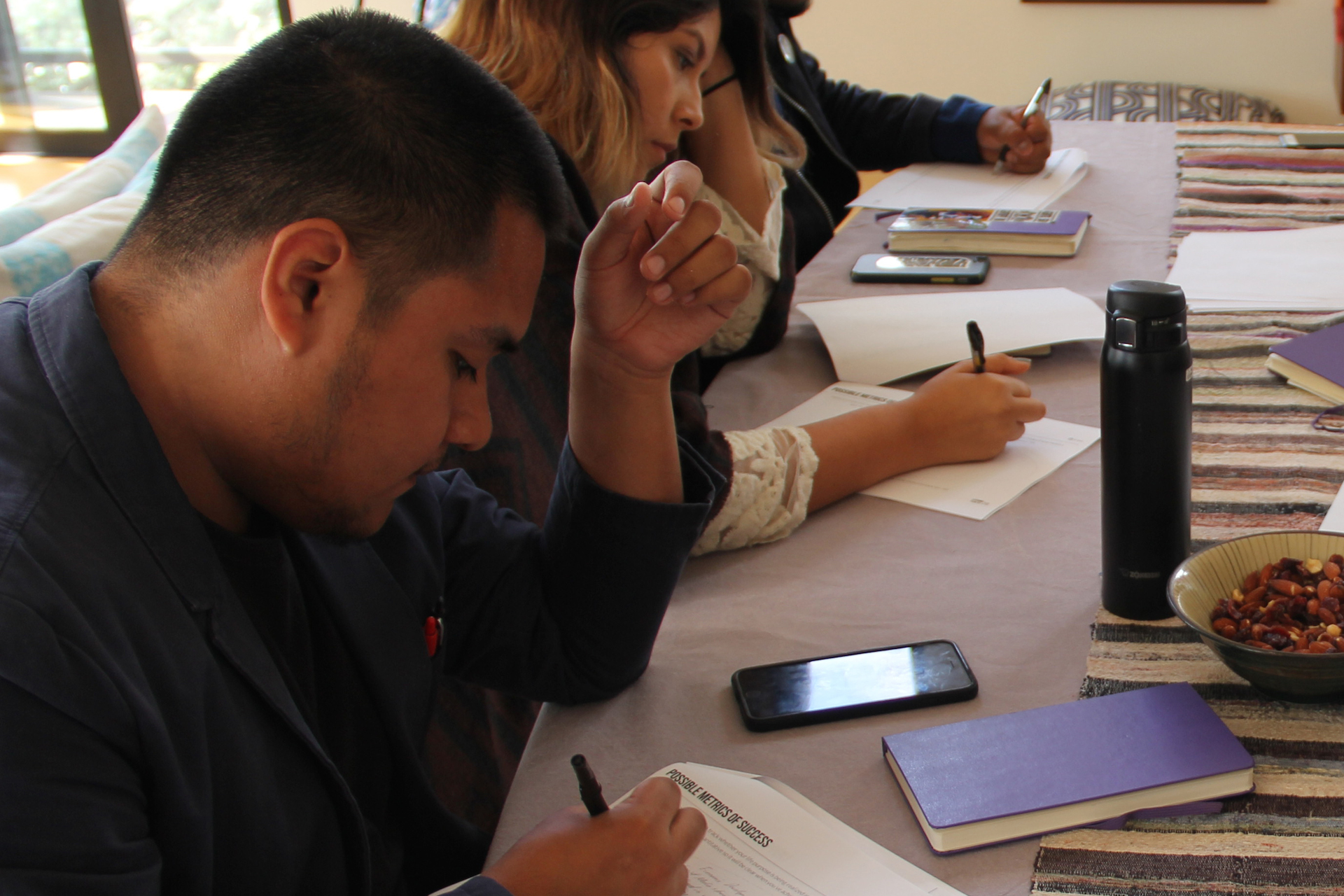
13 Jan Deconstructing the Complexities of “Adulting”
By: Omar Vargas
—
With each module, Fellows dig into readings, exercises, conversations, and reflections around a theme. November/December’s theme = Educational, Life and Career Pathways.
Since graduating from college, I have not thought about my career goals because much of my focus has been on finding immediate employment. Now though, being an Urban Futures Lab Fellow for more than two months has given me the opportunity to think about my goals and aspirations for the years to come. I will admit that, in the back of my head, the idea of planning your life out when you do not know what exactly you want to do with the rest of it, let alone even have professional experience, can at first feel like voodoo magic. But the more I’ve embraced thinking about my future, the more I understand as to why it is important in reaching what I aspire to become.
Given the task of thinking about my “life purpose” has been mentally challenging. I had an understanding that I wanted to pursue a career in “urbanism”. This module’s exercise led by Roland Navarro helped me to clarify more: that I want to be an urban influencer in the city of Los Angeles, becoming a prominent voice in how the city develops for its citizens. I was confronted with reflecting, in the span of around 30 minutes, on how I can accomplish my life purpose. I was forced to think about the skills I needed to make my aspiration come to fruition while at the same time being honest with myself; what I wanted, how to get it, and understanding that my goals will take a while to accomplish.
One of the huge realizations that I came across through my planning was that our aims would require time, energy, and rock-headed commitment – career planning takes patience. I was upset to think that searching for meaningful work and accomplishing my purpose would take years because I had initially wanted to reach my goals in a short amount of time, and not have to wait it out for longer if necessary. Disappointed, I dismissed this realization for a while until I started to read books and articles about career development and how to create meaningful work for yourself. Cal Newport’s “So Good They Can’t Ignore You” argues that to build a successful career, one must develop “career capital,” rare and valuable skills that will make you desirable for people to employ you. In my other readings, I learned that most successful people use their time efficiently and see it as a much more valuable commodity than money because time cannot be retrieved. Patience is necessary because successful people understand that it leads to career satisfaction.
My learnings came full circle during this module’s supper club where successful people discussed their careers and how they got to where they are today. Roland and Grace Cruz talked about how careers are not a linear path. In fact, their career paths have moved all over the place and at times have caused them frustration. However, focusing on their end goals while pushing themselves to the limit in their fields put them in the position to do what they want through applying what they know already. For example, Grace used her experiences of being an educator to innovate in her current endeavors, such as developing her own ‘linked learning’ school. I learned from Grace and Roland that not only do you need to develop skills to be competitive, but that relationships with people drive our success. These people are masters of their craft, and it is not hard to understand why, given their confidence in themselves and their abilities, as well as the relationships that they have built and which have inspired them to push themselves.
With my life aspiration in mind as well as Newport’s advice, I see the fellowship as providing me with opportunities to push myself to try new things while mastering my communication skills slowly. One example is the video that each Fellow created for the Public Matters website, introducing ourselves and our interests to the world. Learning video editing and storytelling through transitions and dialogue are valuable skills in taking me towards my aspiration to be an urban influencer in the modern world. Social media and content creation are going to be vital in my quest to reaching my life goal. If, for example, I am going to develop a prominent voice on behalf of communities, I need to develop how I express my ideas while also creating a strong personal brand. At the same time, learning more on the topic of urbanism is important in helping me become the person I want to be in 5 to 10 years time.
As for the voodoo magic: this month’s module has helped me to change my views. Self-improvement is helpful. It can be tricky, but it’s given me a sense of direction towards achieving my life purpose.
Blog Post #3 // Learn more about Urban Futures Lab.
